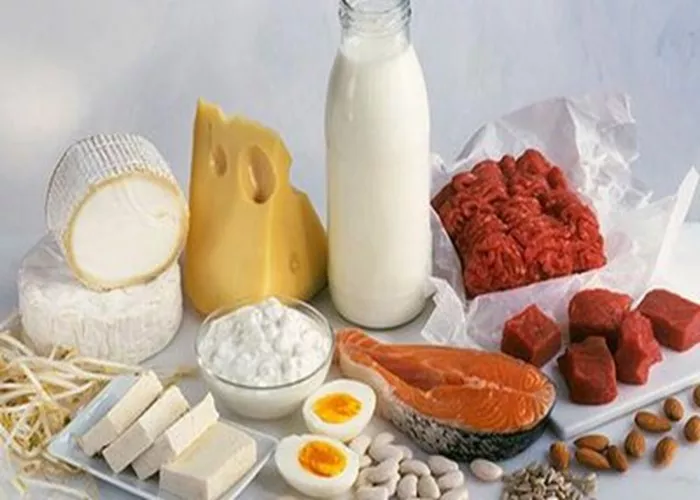In the quest for weight loss, many individuals often turn to various diets, hoping to find the perfect one that will help them shed pounds quickly and effectively. The article “What Is the Best Diet to Fast” delves into this topic, exploring the intricacies of different diets and providing insights on what constitutes an ideal diet for fast weight loss.
Understanding the Basics of Weight Loss
Before diving into specific diets, it’s crucial to understand the fundamentals of weight loss. Weight loss occurs when the calories consumed are less than the calories burned. This principle, known as calorie deficit, is the cornerstone of any weight loss plan.
However, achieving a calorie deficit isn’t just about cutting calories drastically. Doing so can lead to nutrient deficiencies, slow metabolism, and even weight regain once the diet is stopped. Instead, the focus should be on choosing the right types of foods that provide essential nutrients while keeping calorie intake in check.
Popular Diet Trends
The world of weight loss is filled with numerous diet trends, each claiming to be the best for fast weight loss. Some of the most popular diets include:
Low-Carb Diets: These diets emphasize reducing carbohydrate intake, as carbohydrates are the primary source of energy for the body. By limiting carbs, the body is forced to use stored fat for energy, leading to weight loss. However, extreme low-carb diets can be restrictive and may not provide all the necessary nutrients.
Low-Fat Diets: These diets focus on reducing fat intake, as fat contains more calories per gram than carbohydrates or protein. While reducing fat intake can help with weight loss, it’s important to choose healthy fats (like those found in avocados, nuts, and olive oil) that are essential for overall health.
Intermittent Fasting: This diet involves cycling between periods of eating and fasting. The most common method is the 16/8 method, where individuals fast for 16 hours and eat within an 8-hour window. Intermittent fasting can help with weight loss by reducing overall calorie intake and improving insulin sensitivity.
Ketogenic Diets: These diets are high in fat, moderate in protein, and very low in carbohydrates. The goal is to put the body into a state of ketosis, where it burns fat for energy instead of carbohydrates. While ketogenic diets can be effective for weight loss, they may not be suitable for everyone, especially those with certain health conditions.
What Makes a Diet Ideal for Fast Weight Loss?
When considering which diet is best for fast weight loss, several factors come into play:
Nutrient Density: An ideal diet should be nutrient-dense, meaning it provides a high amount of nutrients per calorie. This ensures that individuals get all the essential vitamins, minerals, and other nutrients they need while keeping calorie intake in check.
Sustainability: The diet should be sustainable in the long term. Crash diets or extreme restrictions can lead to nutrient deficiencies, slow metabolism, and even weight regain once the diet is stopped. Instead, focus on making gradual, sustainable changes to your diet and lifestyle.
Flexibility: An ideal diet should be flexible enough to accommodate individual preferences and cultural backgrounds. This helps ensure adherence and prevents feelings of restriction or deprivation.
Scientific Backing: The diet should be based on scientific evidence and research. This ensures that it’s safe, effective, and likely to produce long-term results.
Practical Tips for Fast Weight Loss
Now that we’ve established what makes a diet ideal for fast weight loss, let’s look at some practical tips to help you get started:
Choose Whole Foods: Focus on eating whole, unprocessed foods. These foods are typically more nutrient-dense and less likely to contain unhealthy additives or preservatives.
Portion Control: Be mindful of portion sizes, especially when eating out or dining at home. Use smaller plates and bowls to help control portion sizes and avoid overeating.
Stay Hydrated: Drink plenty of water throughout the day. Staying hydrated can help reduce hunger and prevent overeating.
Plan Your Meals: Take the time to plan your meals and snacks for the day. This helps ensure that you have healthy options on hand and reduces the likelihood of making unhealthy choices.
Incorporate Exercise: While diet is crucial for weight loss, exercise can help accelerate the process. Incorporate both aerobic and strength training exercises into your routine to boost metabolism and build muscle.
Seek Professional Guidance: If you’re unsure where to start or need help making sustainable changes to your diet and lifestyle, consider seeking professional guidance from a registered dietitian or nutritionist.
Conclusion
The best diet for fast weight loss is one that is nutrient-dense, sustainable, flexible, and based on scientific evidence. By focusing on whole foods, controlling portion sizes, staying hydrated, planning your meals, incorporating exercise, and seeking professional guidance, you can achieve your weight loss goals in a healthy and sustainable way.
Remember, weight loss is a journey, not a destination. Take it one step at a time, and don’t be afraid to make adjustments as needed. With patience, persistence, and the right diet and lifestyle changes, you can achieve your desired results.
Related topic:


